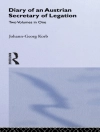Florence Henrietta Fisher Lady Darwin’s ’Six Plays’ is a collection of dramatic works that offer a unique glimpse into the societal norms and values of the early 20th century. Written in a distinctly elegant and sophisticated style, these plays explore themes such as love, betrayal, and ambition with a keen eye for human emotion and psychology. Lady Darwin’s literary context as a playwright in a male-dominated field shines through in her meticulous attention to detail and character development, making each play a thought-provoking reflection on the complexities of the human experience. Her use of dialogue and stage directions further enhances the reader’s immersion into the dramatic world she creates. Lady Darwin’s background as a member of the aristocracy and her keen interest in social politics likely influenced her portrayal of the characters and conflicts in ’Six Plays’. Her status as a prominent figure in literary circles during her time gives her work a sense of authority and insight into the cultural milieu of the era. I highly recommend ’Six Plays’ to readers interested in delving into the world of early 20th-century drama and exploring the intricacies of human relationships through the lens of a talented and insightful playwright like Florence Henrietta Fisher Lady Darwin.
Om författaren
Florence Henrietta Fisher, known after her marriage as Lady Darwin, was a literary figure who, while not prolific, contributed to the theatre genre with her collection, ’Six Plays’ (1921). Born in 1864 to Herbert William Fisher, a historian, and Mary Louisa Jackson, she was entrenched in intellectual rigor from a young age. Her marriage in 1884 to Sir Francis Darwin, botanist and son of renowned naturalist Charles Darwin, further aligned her with a heritage of scholarly pursuit. Florence embodied the early 20th-century prototype of the enlightened female author, engaging in literary discourse that accompanied the family’s scientific legacy. In ’Six Plays, ’ Lady Darwin explores themes of morality, social expectation, and character psychology within a framework that mirrors the Edwardian preoccupation with social norms and human behavior. Her dramatic works, though less known than her familial connections, display an acute understanding of dialogic structures and the intricate subtleties of human interactions. Each play showcases her ability to utilize the stage as a microcosm for broader societal analysis. Literary critics have noted that her narrative voice exhibits a blend of earnest storytelling with a keen edge for satire, an interplay characteristic of her educated background and personal wit. Though her bibliography is not extensive, Lady Darwin’s contribution represents an elegant and thoughtful excursion into early 20th-century drama, deserving of recognition amidst the greater panorama of literary history.












